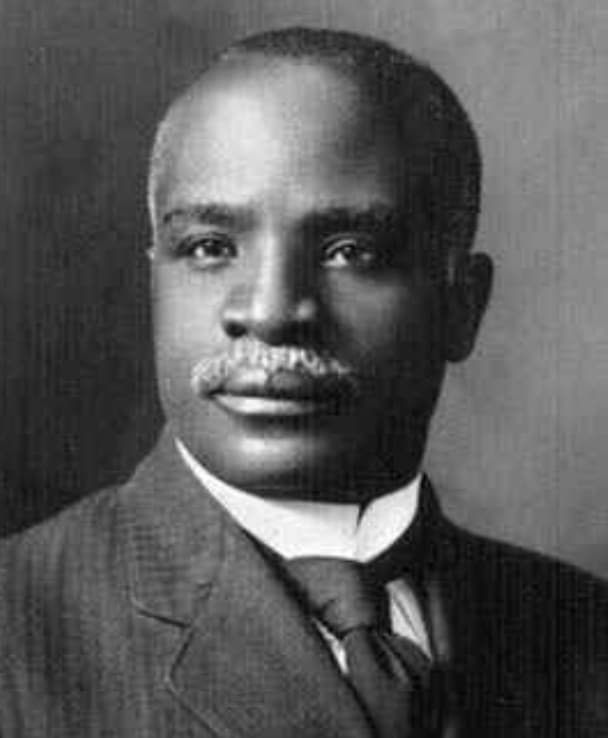
Kelly Miller was born on July 23, 1863 in Winnsboro, South Carolina in the midst of the American Civil War. He was the sixth of ten children born to Kelly Miller Sr. and Elizabeth Roberts, who had been a slave. Kelly Miller Sr., a free African-American tenant cotton farmer, was fighting for the Confederate army when General Sherman and his troops marched into Winnsboro and destroyed part of the town.
After the end of the Civil War in 1865, a period of reconstruction was under way, rebuilding destroyed towns and establishing an education system for the young people in the Southern states. At an early age, Kelly attended a newly developed primary school for African-Americans organized by a Presbyterian minister, Reverend Willard Richardson. Under the guidance of the minister, Kelly became engaged in a study of the humanities, the classics, and mathematics. His mentor soon realized that Kelly had a special mathematical proclivity, and in 1878 arrangements were made for Kelly to attend the Fairfield Institute in Winnsboro, an Institute for African-Americans.
After two years at Fairfield, Kelly was awarded a scholarship for a 3-year Preparatory Course in classic studies and mathematics to qualify him for enrolment in Howard University, in Washington, D.C.–an institute for advanced study created specifically for African-Americans. Since he was able to complete the Preparatory Course in two years, instead of three, he entered the College of Arts and Sciences at Howard in 1882. Between 1882 and 1886, Kelly studied Latin and mathematics, graduating in 1886 with a Bachelor of Science degree. In 1887, Kelly enrolled in Johns Hopkins University, where he studied mathematics, physics and astronomy, and by 1889 had earned a Bachelor of Arts degree. During the next two years, Kelly worked on a Ph.D. but a large increase in the university fees forced him to drop out of the program and his Ph.D. was not completed.
In need of money to support himself, Miller accepted a job as a mathematics teacher at Perry School, Washington D.C. from 1889 to 1890. He was subsequently was appointed to a professorship in mathematics at Howard University. Four years later, he married a teacher at the Baltimore Normal School, Annie May Butler, and together they had five children. Kelly served as professor of mathematics at Howard for five years then, in 1895, he was appointed as professor of sociology at Howard. Miller graduated from the Howard University School of Law in 1903 and in 1907 was appointed dean of the College of Arts and Sciences
In his mathematical research, Kelly Miller focused mainly on sub-fields of geometry. However, he is perhaps best known for his work as an educator, writer, and public speaker. Throughout his career, he advocated for the education and advancement of African-Americans and worked to dismantle racial barriers in academia and society. Kelly Miller’s writings and speeches often tackled issues of racial discrimination and inequality, and he played a significant role in the early civil rights movement in the United States. In an address to graduating students at Howard University in 1898 he said:
Do not go through the world with a self-deprecatory demeanour, as if you owed the rest of mankind an apology for existing. … Do not think of yourselves as despicable and mean in comparison with the more forward class who are in the van of civilization. … The diplomas which you hold in your hands confer upon you all the rewards, rights, privileges, honours, and distinctions which are accustomed to be conferred upon the choicest youth of the human race throughout the civilized world. … But I must caution you to discriminate finely between self-respect and self-conceit.
Kelly Miller’s legacy as an educator, mathematician, and civil rights advocate continues to be remembered and celebrated in American history.
